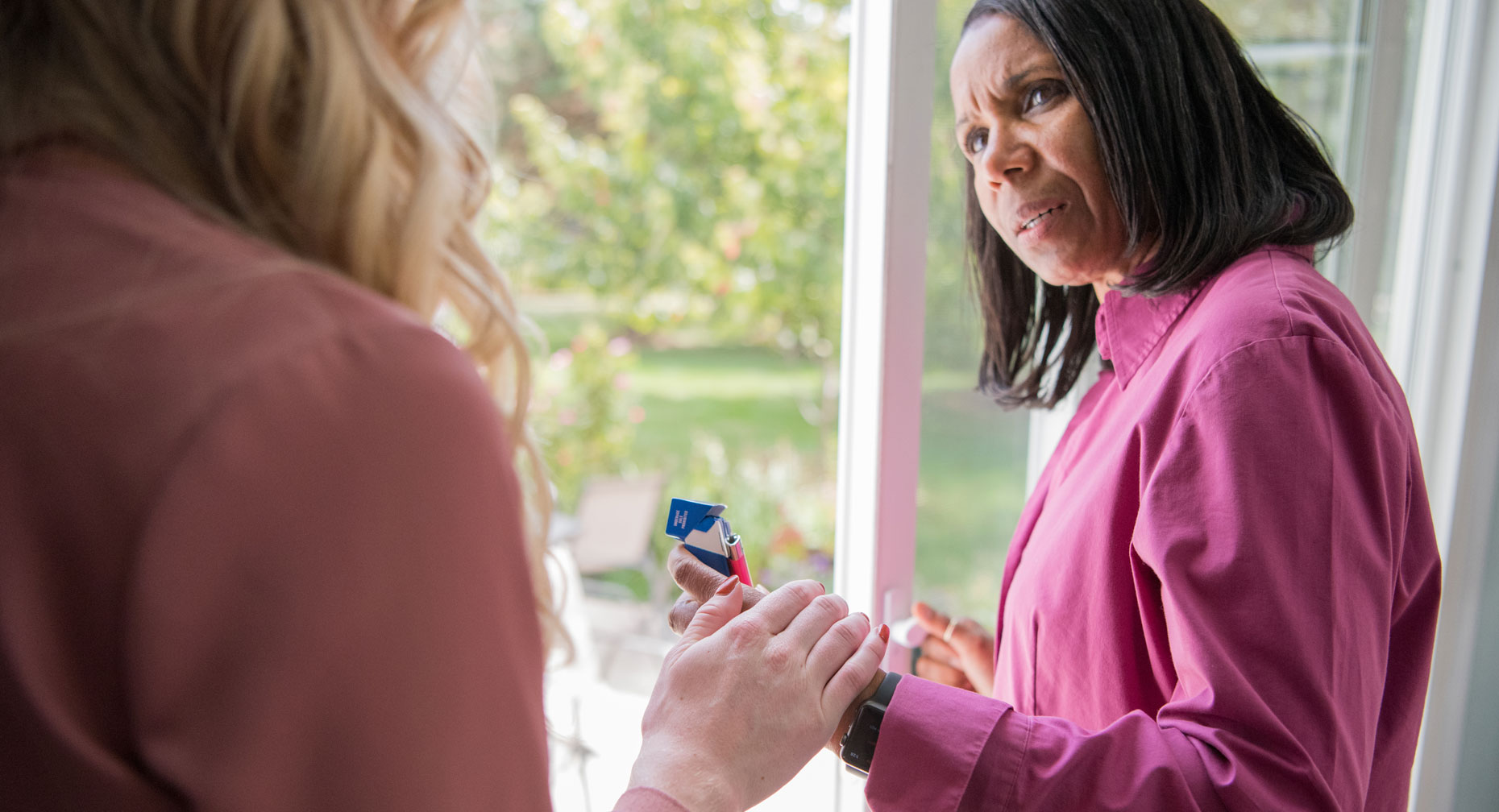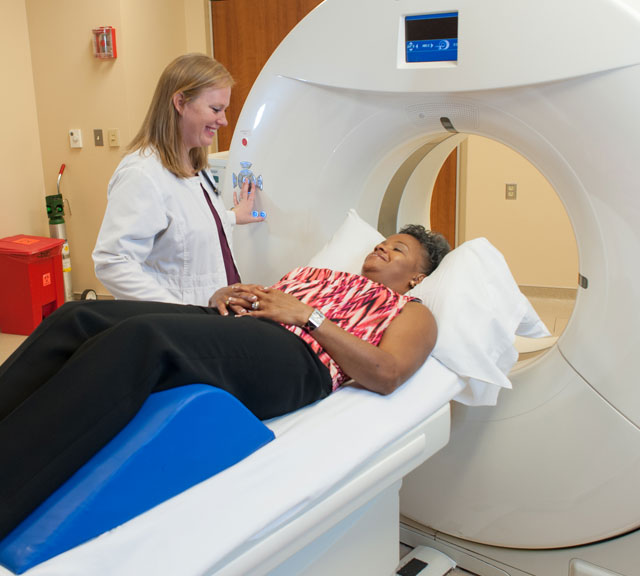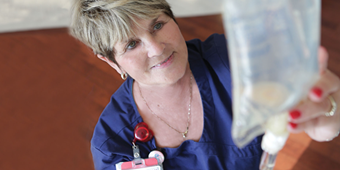Does a Spot on the Lung Mean Cancer?

Answer a few questions and we'll provide you with a list of primary care providers that best fit your needs.
Lung nodules are abnormal spots that can be found when you get a chest x-ray or a CT scan of the chest for symptoms you are having, or a lung cancer screening.
If you just found out that you have lung nodules, you might be wondering, “Do I have cancer?”
While the chance is small that you have cancer — 95 percent of lung nodules are not cancerous — it’s normal to feel worried if you don’t know. Your doctor will need to evaluate the nodules regularly to see if they show signs of cancer.
While the chance is small that you have cancer — 95 percent of lung nodules are not cancerous — it’s normal to feel worried if you don’t know.
Here are some next steps if you’ve just learned that you have lung nodules:

- Be reassured: Having nodules on the lung is common, but getting lung cancer is not. At least 50 percent of adults have nodules in their lungs by the time they are 50 years old. Even though most lung cancer initially starts out as a nodule, only 5 percent of lung nodules turn out to be cancerous.
- Ask questions: Ask your doctor to describe the size, shape, location, density and consistency of the nodules for you. The larger a nodule, the higher the likelihood it contains cancer. Most nodules less than 8 mm in size are not cancerous (benign).
- Know your risk level: Lung cancer is more common in older adults, those who have large nodules, people who smoke and those who have handled asbestos.
- Be patient: When a lung nodule is found, your first thought might be to have it removed as soon as possible. However, that is usually not recommended because most nodules turn out to be benign, and many are too small to be removed safely. In short, it may do more harm than good.
- Make follow-up appointments: If your doctor finds a lung nodule, you’ll want her to regularly evaluate it to determine whether or not it grows during a two-year period. If it seems like the nodule is getting bigger, it may be necessary to remove a piece to send it in for testing (also known as a biopsy). If the nodule does not grow after two years, it is usually safe to stop watching it.
- Make some changes, if needed: It can be hard to wait in suspense, without knowing if your lung nodule is cancerous or not. If you currently smoke, use this experience as motivation to stop smoking. By quitting, you can reduce your risk of developing lung cancer in the future.
- Decide on a treatment plan (if necessary): If you do have lung cancer, you and your doctor can work together to determine a lung cancer treatment plan that works best for you.
Answer a few questions and we'll provide you with a list of primary care providers that best fit your needs.
Source: Am Thoracic Society; Lung Cancer Alliance




